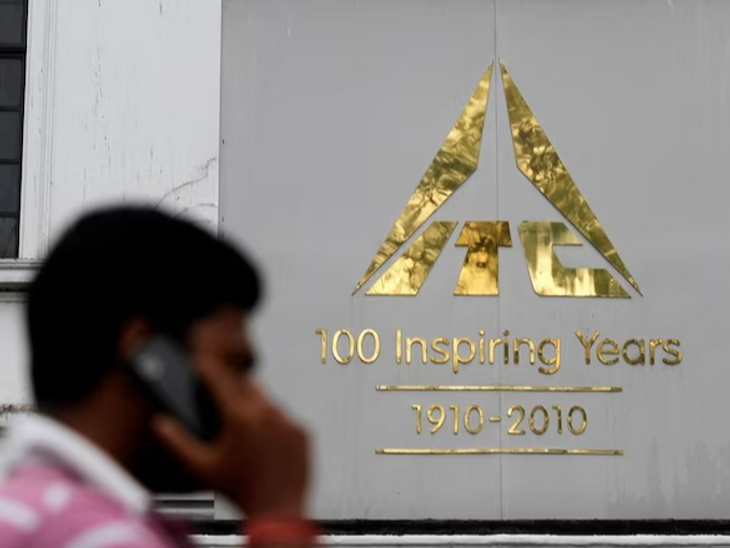New Delhi38 minutes ago
- copy link

Amid rising inflation in the country, FMCG companies selling everyday goods have increased the problems of common people. In the last two-three months, these companies have increased the prices of food and personal care products by 2 to 17%. Companies like Tata, Dabur and Emami have indicated that they are also going to increase the prices of their products.
Companies are citing the increase in the prices of raw materials as the main reason for this. According to trade data and analysts, companies have increased prices of soap-body wash by 2-9%, hair oil by 8-11% and select food items by 3-17%.
ICICI Securities has written in a note that companies can increase prices by an average of 1 to 3% in the current financial year 2024-25. At the same time, Nuvama Institutional Equities believes that the prices of FMCG products may increase again.

Prices of flour to coffee increased
- Nestle has increased the prices of coffee by 8-13%, Maggi oats noodles by 17%.
- With the blessings of ITC, wheat flour prices have been increased by up to 4%.
- Godrej Consumer Products has increased the prices of soaps, detergents by 4-5 percent.
- Colgate has increased the price of Palmolive Body Wash by single digits.
- Pierce Body Wash has increased by 4%. Detergent brands from HUL, P&G and Jyoti Labs have increased prices by 1-10% on select packs.
- HUL has increased the prices of shampoo by 4-6% and the prices of skin care products by 4%.
Bikaji Foods talked about increasing the prices of its products by 2-4%
Bikaji Foods has talked about increasing the prices of its products by 2-4%. Companies had increased prices to maintain margins from the year 2022 to the beginning of 2023. After this, due to falling prices of raw materials, companies refrained from increasing prices in the financial year 2023-24. But now despite the fall in the prices of crude oil and palm oil, there is a trend of increase in the prices of other commodities like milk, sugar, coffee, copra and barley.
Tomato prices doubled in South India, less impact in North
Tomato prices have doubled in the last 15-20 days in Maharashtra and southern states Karnataka, Andhra Pradesh, Tamil Nadu. The reason for this is the decrease in production due to extreme heat.
The average price of tomatoes in the wholesale markets in these states has reached Rs 40-50 per kg. However, there has been no increase in prices due to excess supply of tomatoes in North India. But the scorching heat is coming here too and it may become difficult in the coming days.

How does inflation affect?
Inflation is directly related to purchasing power. For example, if the inflation rate is 6%, then Rs 100 earned will be worth only Rs 94. Therefore, investment should be made only keeping inflation in mind. Otherwise the value of your money will reduce.
How does inflation increase and decrease?
The rise and fall of inflation depends on the demand and supply of the product. If people have more money they will buy more things. Buying more things will increase the demand for things and if the supply is not as per the demand, the price of these things will increase.
In this way the market becomes vulnerable to inflation. Simply put, excessive flow of money or shortage of goods in the market causes inflation. Whereas if demand is less and supply is more then inflation will be less.
Inflation is determined by CPI
As a customer, you and I buy goods from the retail market. The work of showing the changes in prices related to this is done by the Consumer Price Index i.e. CPI. CPI measures the average price we pay for goods and services.
Apart from crude oil, commodity prices, manufactured costs, there are many other things which play an important role in determining the retail inflation rate. There are about 300 items on the basis of whose prices the retail inflation rate is decided.
Read this news also…
Wheat stock lowest in 16 years: Effect- Flour will be expensive; Government procurement reduced by 29% even at higher prices

Wheat has become expensive by 8% in a year. Prices have increased by 7% in the last 15 days, which may increase by 7% in the next 15 days. Actually, there should be three months’ stock (138 lakh tonnes) in government stores of wheat at all times. But this time before the start of the procurement season it was only 75 lakh tonnes. Earlier in 2007-08 it was 58 lakh tonnes i.e. now it is at the lowest level in 16 years.Read the full news…
Retail inflation declined to 4.75% in May: It was at a 12-month low, from 4.44% in July 2023

Retail inflation stood at 4.75% in May. This is a 12-month low. In July 2023 it was 4.44%. The National Statistical Office released these figures on Wednesday, June 12. Retail inflation had come down to 4.83% in April. Then it was at its lowest level in 11 months. In June 2023 it was 4.81%. However, food items had become expensive in the month of April. Read the full news…
Wholesale inflation at the highest level in 15 months: reached 2.61% in May, prices of food items increased

Wholesale inflation has increased to the highest level in 15 months in May. According to the data released today i.e. on June 14, wholesale inflation has increased to 2.61% in May. The wholesale inflation rate in February 2023 was 3.85%. Whereas in April 2024, inflation was 1.26%, which was the highest level in 13 months. A month before this, in March 2024, it was 0.53%. Read the full news…



